
Less is more. Don’t get conned. It’s a scam. These are the sorts of phrases you will hear Consultant Dermatologist Dr Natalia Spierings saying about the skincare industry. She candidly speaks to Sara Whatley about ageing, menopause, Botox, and ‘Big Skincare’
“The skincare industry is so incredibly powerful,” said Dr Natalia Spierings when I spoke to her online recently, one chilly morning. “They know exactly what to say, make and sell to really capture women’s and men’s attention and make them feel bad in order to sell them a product to make them feel better.” In absolute contrast to this Dr Spierings’ message is simple: less is more.
As a Consultant Dermatologist and with her extensive medical training behind her, Dr Spierings is incredibly refreshing in her no nonsense approach to skin. She has a chapter in her book all about products you don’t need – toner, eye cream, exfoliants and scrubs, mechanical cleansing devises, jade rollers, serums, face masks and many more – and she also doesn’t believe in most skincare lotions, potions and miracle ingredients and she isn’t afraid to say so. “I get a lot of negativity from beauty journalists, but I have to let that go. My job isn’t to make a beauty editor think I’m fabulous, my job is to make sure my patients are managed properly and get the right skincare,” she said.
You may have seen Dr Spierings in action on Channel 5’s Skin A&E, and if you are interested in looking after your skin then reading Skintelligent, Dr Spiering’s recently released book, is a must. She is also a big social media user and has many thousands of followers tuning in to see her latest videos on skin conditions, skin treatments, and weightlifting! In her book, Dr Spierings tells how she came to weightlifting at the end of a long journey to finding “the body I never thought I would have”. She is now a professional bodybuilder in the IFBB Professional League women’s physique division, representing the UK.
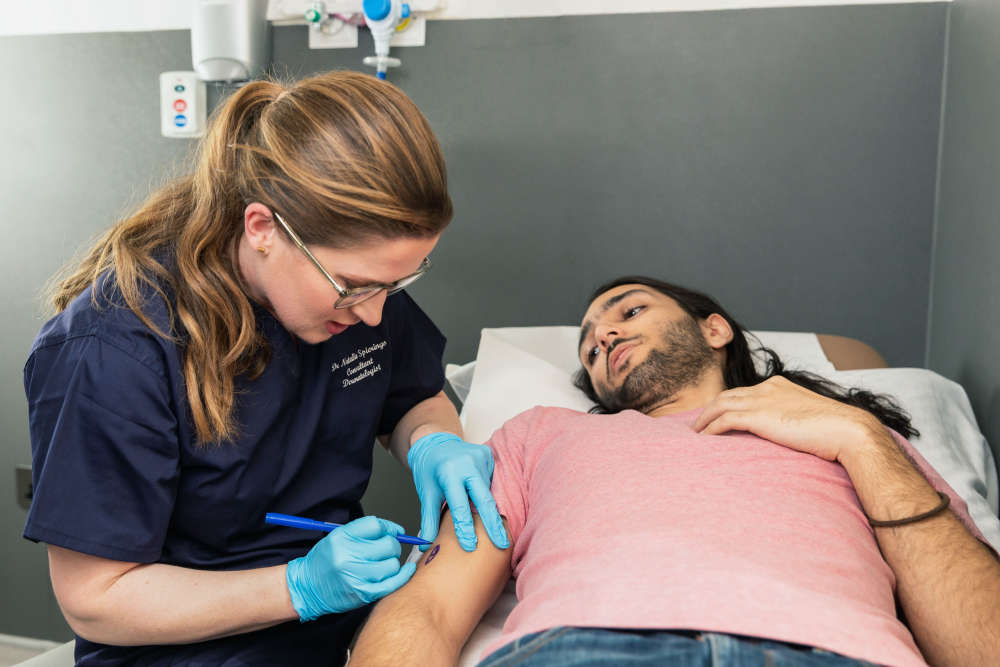
After her initial medical training at various London universities, and a very brief placement in Bognor Regis, Dr Spierings “became interested in dermatology when I was deciding what specialty I wanted to go into as a junior doctor. What I love about dermatology is that the disease is there or it isn’t. If you can’t see it, then there is no disease. This appeals to my simple, practical nature! And when it is treated, you can see that too because the skin disease is gone.” She now has practices in both London and Dubai and divides her time between these two places.
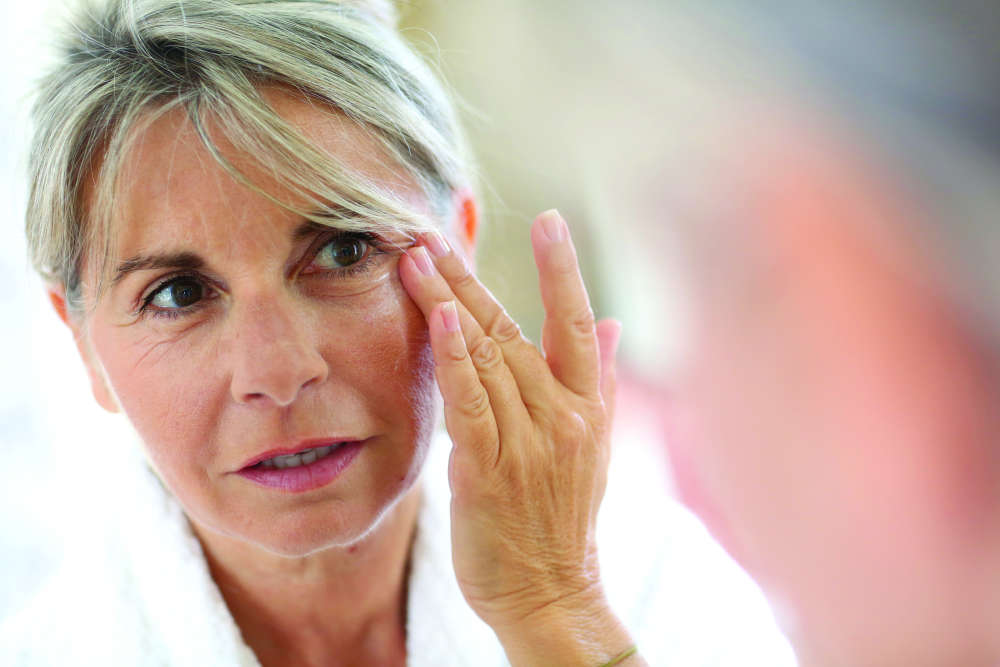
Do you get annoyed with ‘Big Skincare’, as you call them in your book?
Yeah I get really annoyed! I’m very reactive, but I’ve had to tone that down as it’s got me in trouble. When I see some of the nonsense that skincare companies put out there I need to not react to that. I don’t want to ever criticize one company in particular, because it would be very easy for me to do that. I’m trying to rise above that. I have a massive problem with doctors working for the skincare industry or doing paid promotions and I’m very vocal about it which some of my colleagues haven’t been very happy about.
Are there skin diseases that come and go over eras?
It’s more like trends towards people noticing certain problems in themselves, though the problem has always been there. Recently the most trendy thing for women is the concept of lifting the face or lifting the skin, because there have been machines coming out in the past couple of years targeted at lifting the lower face non invasively. The industry is creating a problem that perhaps was always there but no one really bothered with. Once the hype for these machines goes away because people realise they are spending £3000 on a treatment that isn’t going to lift their face, there will be a backlash, and the industry will find something new to sell us. It is totally driven by the skincare industry.
Would you say a lot of the focus is on anti-ageing?
It is now; I don’t think it was quite so much 10 years ago. Skincare companies know that tretinoin is the only FDA approved and licensed medicine for lines. So they say, ‘how can we sell this in a way that people don’t need a prescription and we can market this product?’ They create vitamin derivative products. Now in any skincare line you will get a retinol product [retinol is a form of vitamin A, but until that retinol is converted into retinoic acid or tretinoin (a synthetic version of biologically active retinoic acid) it will not have any powerful effect on lines and wrinkles], though the efficacy of these products is basically zero, and that is well established.
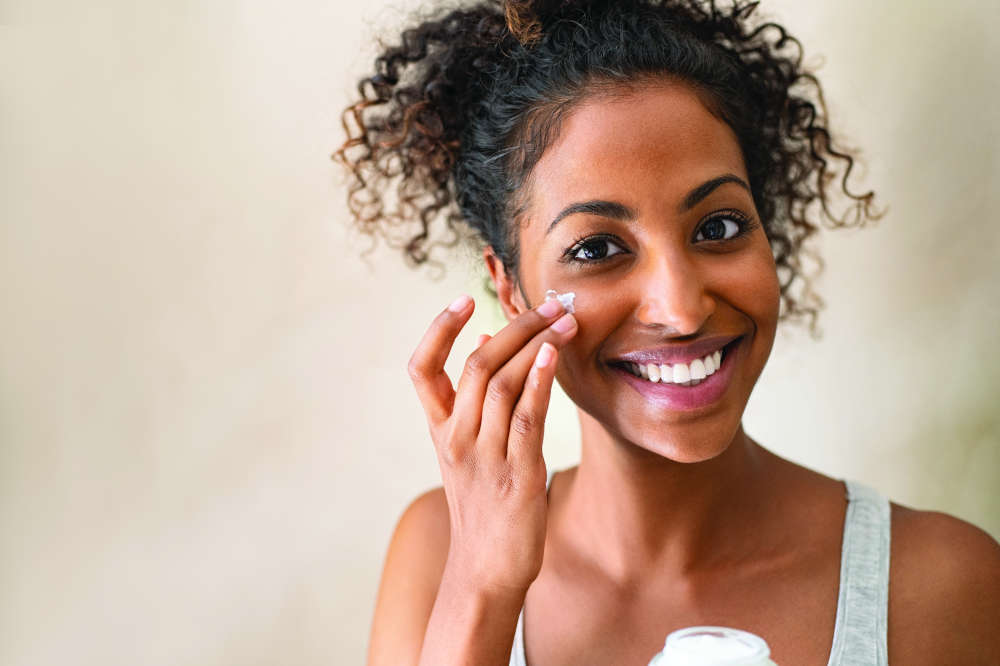
With increased awareness and social media use, are you seeing younger people in your clinics now?
My patients are generally between 35 and 55, females. But I do have a worrying amount of men and women who are all about anti aging, at the age of 23! Don’t worry about your wrinkles! You don’t have any wrinkles! There are a good amount of men in their 20s who are concerned about hair loss, though they have no hair loss. When I was that age I didn’t even think about aging. I was more concerned about getting through medical school and what I was going to do at the weekends!
Can you tell me about skincare and perimenopause and menopause?
Aging and menopause are very much related. The changes that you see in aging skin are the same you would see in menopausal skin: hair thinning and dry skin are the two main things. With dry skin, the main change is the decrease in hydration that you see in the dermis over time. We believe that it's potentially also oestrogen related, so as your oestrogen declines that change happens.
Hair thinning is something that’s going to happen to most women. I make sure there is no underlying issue going on as hair thinning can be caused by many things, but HRT can help. Although I don’t prescribe HRT myself, I would send them to a menopause specialist.
The two other conditions I see more commonly are problems with acne and problems with pigmentation – melasma. I have a good number of patients who present with their first melasma at the age of 45 without an underlying problem. I think it’s due to menopause but this has never really been studied. Melasma is the mask like pigmentation on the face, generally associated with pregnancy.
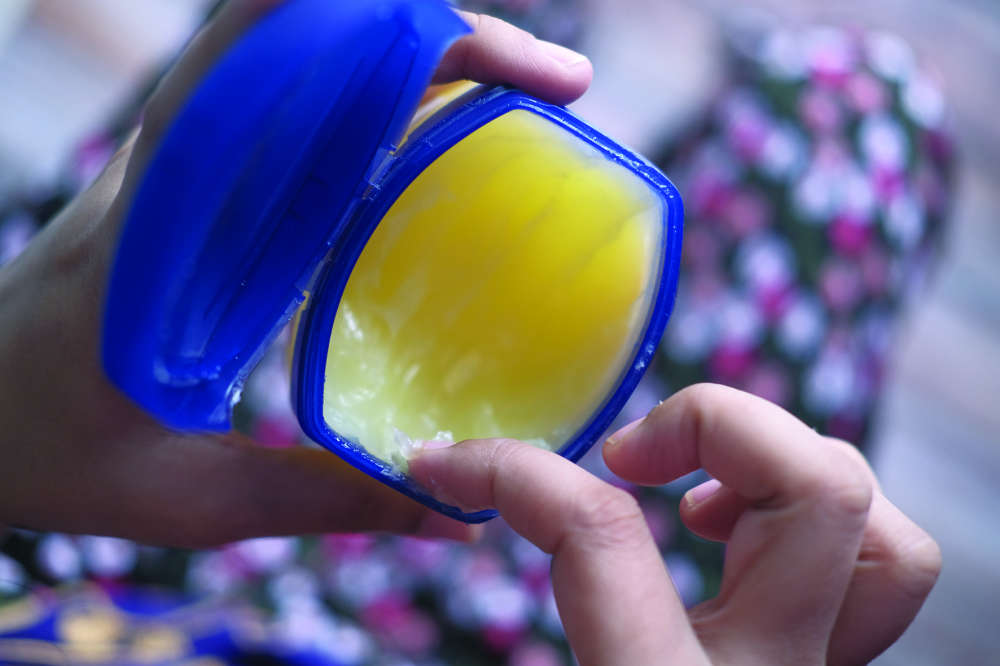
Do patients already have a tendency toward acne if they develop it in menopause?
Normally, yes. There is a resurgence, kind of like going through puberty again, and that’s what women say, ‘I feel like I’m going through puberty again’. The management of it is the same.
What is the best way to manage perimenopausal or menopausal skin?
Don’t get conned into buying menopause specific skincare. You skin doesn’t know how old you are when it comes down to putting moisturiser on! I always want to protect people from being ripped off.
Generally increase your use of heavier emoliums, unless you don’t like that, but things like Vaseline or anything that is an 'occlusive emollient'. Use that at night, and be very good about doing that. And incorporate a retinoid into your skincare because we know that that will increase collagen in the dermis over time, it will help protect from sun damage, it can reverse some signs of sun damage and help with hydration.
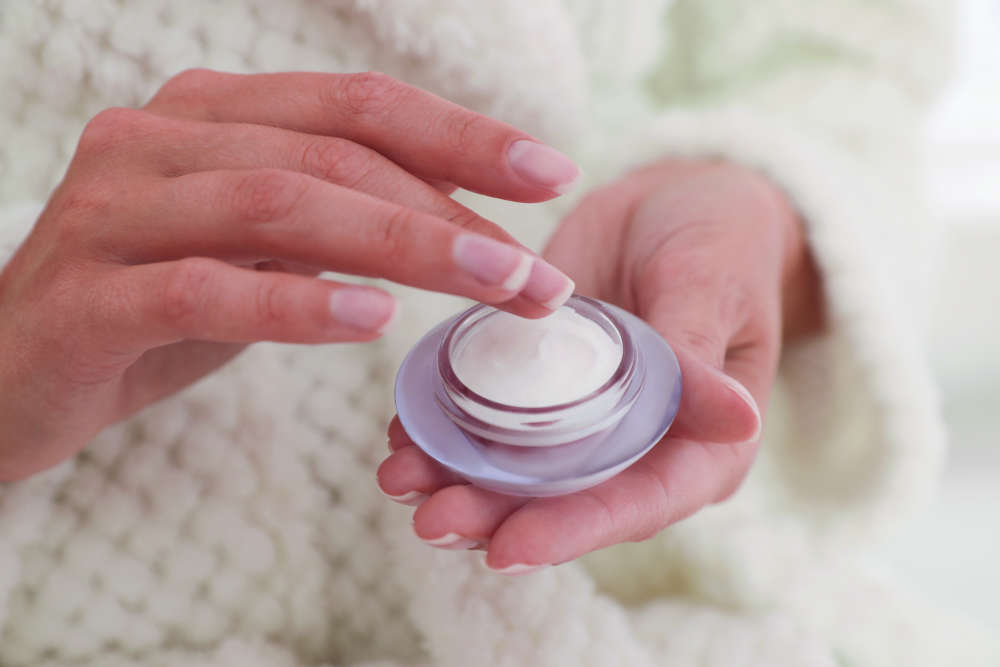
What do you think about Botox?
I love Botox! I think it’s one of the only things that works well. Of all the things you can do to your face that is an injectable or procedure, Botox is almost certainly the best thing to prevent aging and to keep you looking youthful, if done correctly. It’s relatively cost effective and very minimal risk. Start when you have static lines (lines when you are at rest) to prevent them from getting worse. Unless you are about to have a family – have your family first then commit to your Botox. A treat after having children!
Skintelligent, what you really need to know to get great skin by Dr Natalia Spierings is published by Vermillion

 Pilates or Yoga - which practise will suit you most?
Pilates or Yoga - which practise will suit you most?
 How to improve your posture and prevent unnecessary back pain
How to improve your posture and prevent unnecessary back pain
 Active Lifestyles: How to Keep Fit and Healthy in Mid Sussex
Active Lifestyles: How to Keep Fit and Healthy in Mid Sussex
Comments
Add a comment